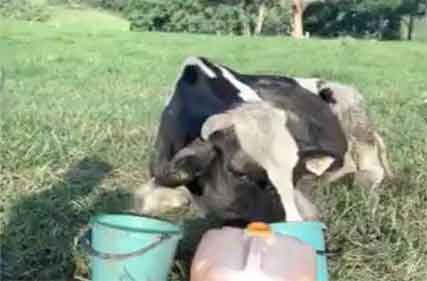 The Hunter Local Land Services District Veterinarian team have advised Hunter livestock producers that Bovine Ephemeral Fever (BEF), also known as three-day sickness, has recently been confirmed by laboratory testing in cattle on the NSW far north coast.
The Hunter Local Land Services District Veterinarian team have advised Hunter livestock producers that Bovine Ephemeral Fever (BEF), also known as three-day sickness, has recently been confirmed by laboratory testing in cattle on the NSW far north coast.
This detection is earlier in the season than usual and it is expected that the disease will move south as the season progresses.
BEF is an insect-transmitted virus of cattle that causes a high fever and pain in the muscles and joints. On the Mid and Hunter Coast it is usually seen in cattle between six months and two years of age, however, if they are from outside the region, adult cattle can also experience the disease.
Lyndell Stone, District Veterinarian with Hunter Local Land Services said, “Affected cattle are often by themselves, off their feed, seek shade and water, shiver, drool and are lame.
“These signs usually last only a few days and most cattle recover uneventfully, however, reports from Queensland, where the disease is seen earlier in the season, suggest that cases this year seem to be more severe.”
Some cattle – especially bulls and heavier conditioned cattle – may go down and take several days to get back on their feet, increasing the risk of secondary complications. More severe lesions in the nerves of some animals may result in some individuals being down or wobbly for prolonged periods. Pregnant cows may abort and bulls may become infertile for up to six months. Milk production can drop significantly in lactating cows. The workload associated with nursing several down and affected cattle can be significant and can be avoided by providing early BEF Vaccination to non-immune stock.
Lyndell said, “The virus usually appears on the Mid and Hunter Coast as the temperature and rainfall increase, stimulating increases in the populations of the biting insects that transmit it.
“The disease is likely to spread south as the season progresses, especially following the recent rainfall so we are encouraging producers to consider vaccinating their stock against the health impacts of BEF infection.”
A vaccine is available and producers could consider vaccinating stock introduced from outside the region and homebred stock under three years of age (older homebred stock may already be immune through infection in earlier years).
Disease surveillance records for the Mid Coast and Hunter region show that there was little to no BEF circulating in the Mid Coast and Hunter in the summer of 2022/23 and limited distribution in the summer of 2021/22 thus younger homebred cattle in the region’s herd are likely to be affected by BEF when it arrives. Bulls and other high value animals of any age could also be vaccinated for maximal protection.
Absentee landholders are particularly advised to consider vaccination to protect their stock.
Lyndell continued “In situations where the virus is already present, the vaccine is unlikely to provide protection in time, however, the Mid Coast and Hunter areas have time for the vaccine to provide protection as the virus is yet to reach our region. The vaccine requires two doses 2-4 weeks apart if previously unvaccinated and then a booster every 12 months.
“When BEF arrives in the region, producers are advised to monitor cattle daily and seek veterinary advice if they are concerned.
“Medication is highly effective in bringing down the fever and reducing the muscle and joint pain, improving recovery timeframes and resulting in less weight loss.
“There are several other diseases that may resemble three-day sickness requiring alternative treatment, so veterinary diagnosis is recommended.”
Affected cattle should be provided with shade, water and feed and turned or lifted twice daily to help prevent secondary complications. A paddock free of steep hills or gullies is preferable.
Recently recovered cattle should not be sent to the abattoirs for several weeks to give the body a chance to heal and avoid the possibility of downgrades from any residual muscle damage. Where treatments have been given, any withholding periods must be observed.
For further advice contact your Hunter Local Land Services District Veterinarian by calling 1300 795 299 or private veterinary practitioner.
Read more about bovine ephemeral fever on our website.
-NSW Local Land Services
